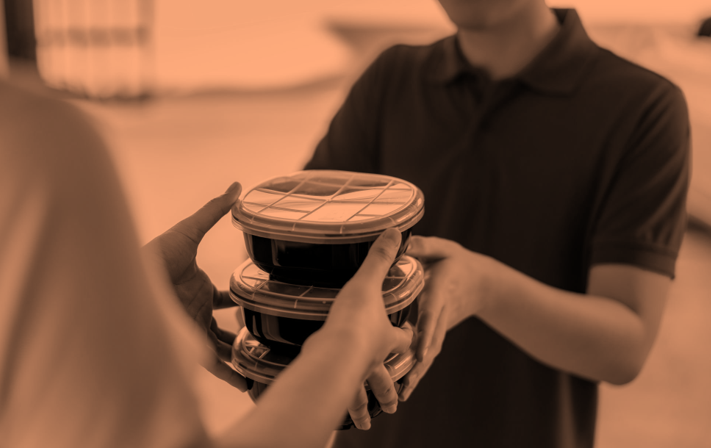Answered by Shaykh Yūsuf Badāt
Question:
My father is currently a taxi driver. He is looking to drive UberEats and DoorDash as there is flexibility for him since he is a senior citizen. Is it permissible for him to drive for these services delivering ḥarām food?
Answer:
In the Name of God, Most Merciful, Most Compassionate
Jazāk Allāh Khayr/ Thank you for your question.
Muslim jurists have differed in the matter of delivering and or transporting islamicaly impermissible products to non Muslims.
Ḥanafī Position
Ḥanafī jurists have permitted the delivery and or transport of products such as wine, pork, ḥarām meals and idols etc. to non-Muslims since there is nothing sinful in the act of delivery or transport itself.
The great Ḥanafī jurist, Imam ʿĀbidīn (may God’s mercy be with him) writes, “It is permissible to deliver wine to a non Muslim, in person [on foot] or with one’s conveyance (vehicle) in return for a fee. It must be made clear that even though the delivery is fine, it is prohibited to manufacture the wine as this will constitute in direct involvement with the sin itself. Some Ḥanafī jurists, such as the Ṣāḥibayn are of the view that transporting such products would not be appropriate (disliked) because this may fall in the category of assisting in sin.”
Imam Zaylaʿīe (may God’s mercy be with him) documents that the reason Imam Abū Ḥanīfah (may God’s mercy be with him) permits the earnings from such transport or delivery is that it cannot be considered a sin nor the means to sin. A sin can only come into existence by the deliberate action of a person to sin, which is not found in the mere act of delivery or transport.
(See: Dur Al-Mukhtār, Hāshiyat Al-Ṭahṭāwī, Al-Baḥr Al-Rāiq, Al-Muḥīṭ Al-Burhāniy, Al-Fatāwa Al-Bazzāriyyah, Imdād Al-Fatāwā, Fatāwā Dār Al-ʿUlūm Zakariya)
Shāfʿīe, Mālikī and Ḥanbalī Position
According to the scholars of the Shāfʿīe, Mālikī and Ḥanbalī schools, it is forbidden to transport non–ḥalāl goods, even to a non-Muslim, as this constitutes supporting islamicaly impermissible activities which is prohibited due to source texts such as the following:
“And assist one another in matters of righteousness and piety, and do not assist one another in sin and aggression.” (Qur’ān: 5:2)
“God has cursed wine, its consumer, its server, its seller, its buyer, its presser, the one for whom it is pressed, the one who delivers it, and the one to whom it is delivered.” (Sunan Abī Dawūd)
Conclusion
It is our view that if one can avoid a job [or work] that is doubtful then one should do so. Opting for a doubtless earning will certainly draw barakah and blessings from the Almighty.
And Allāh Knows Best




